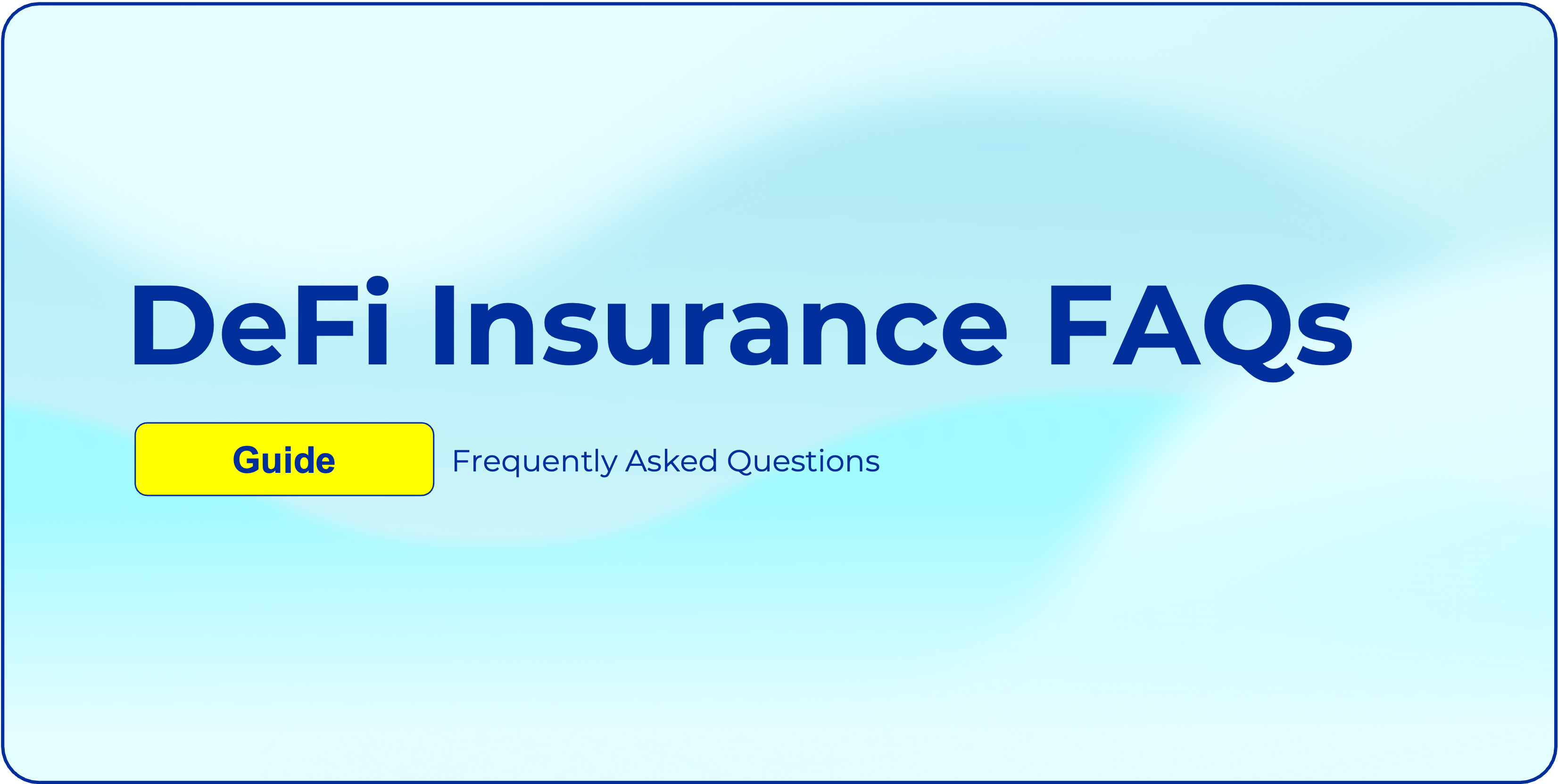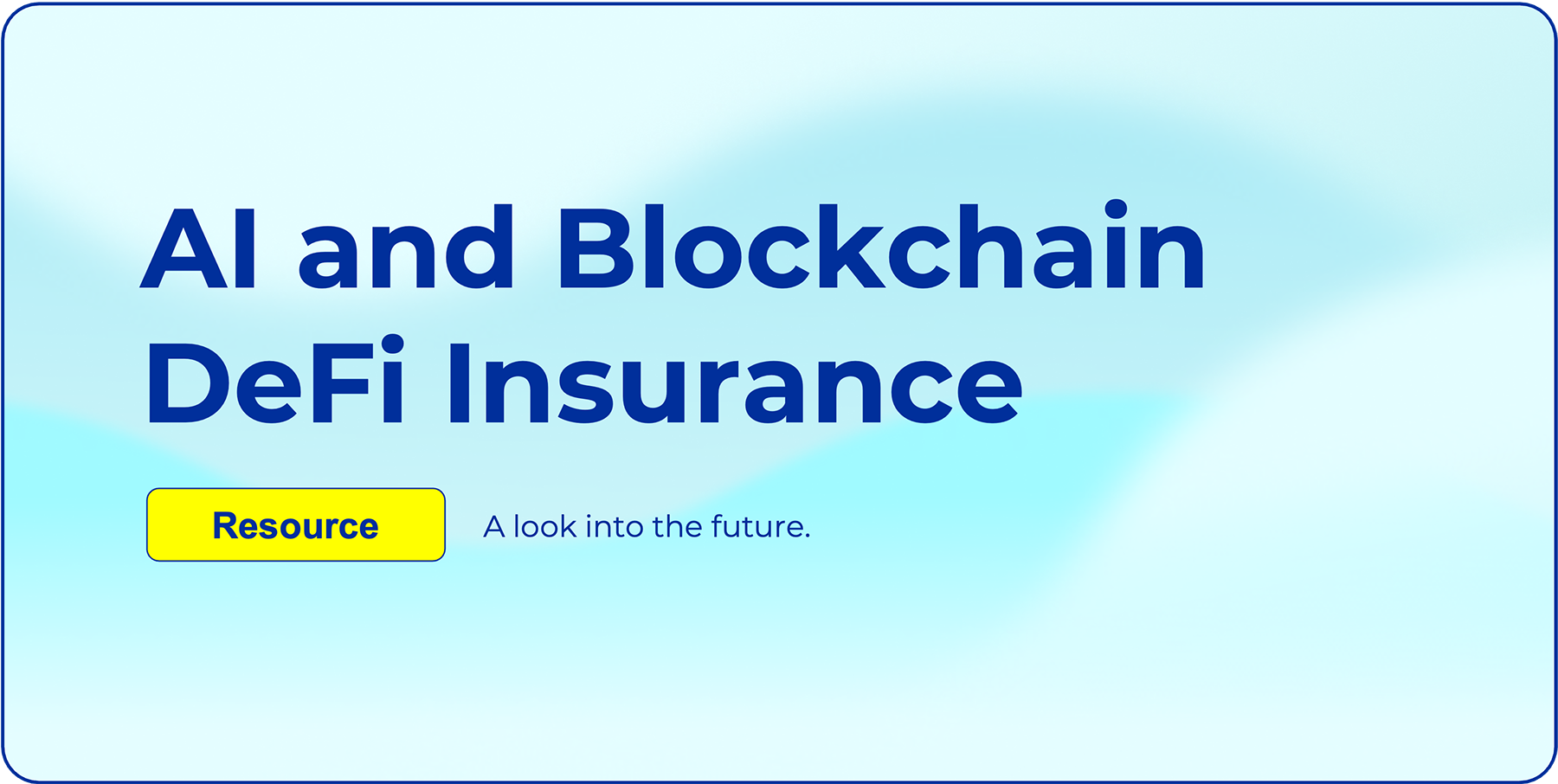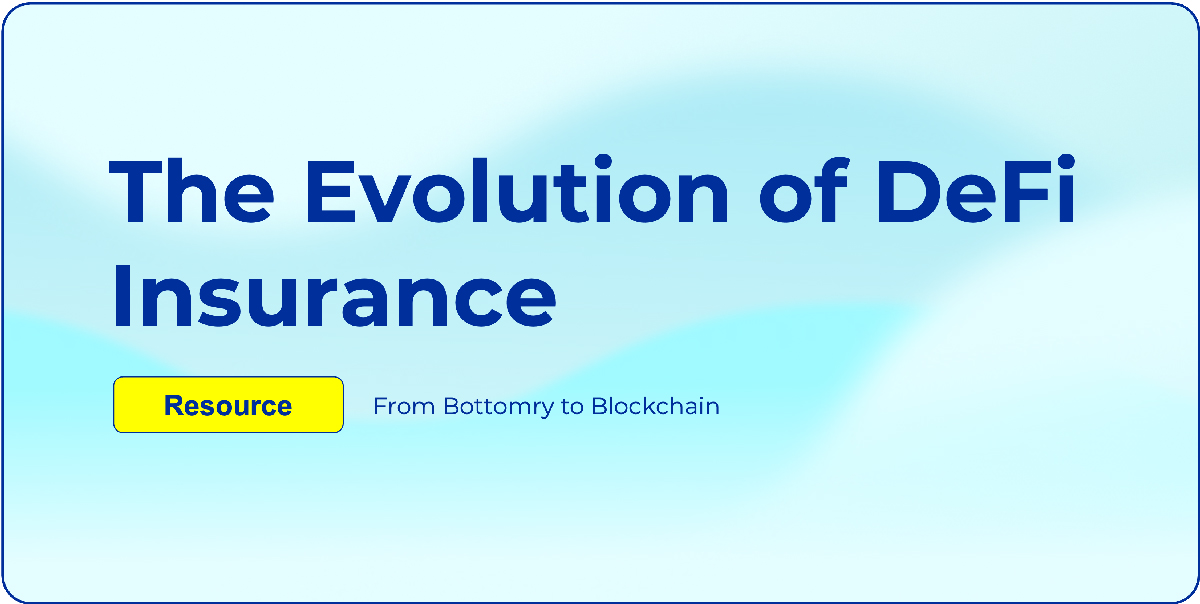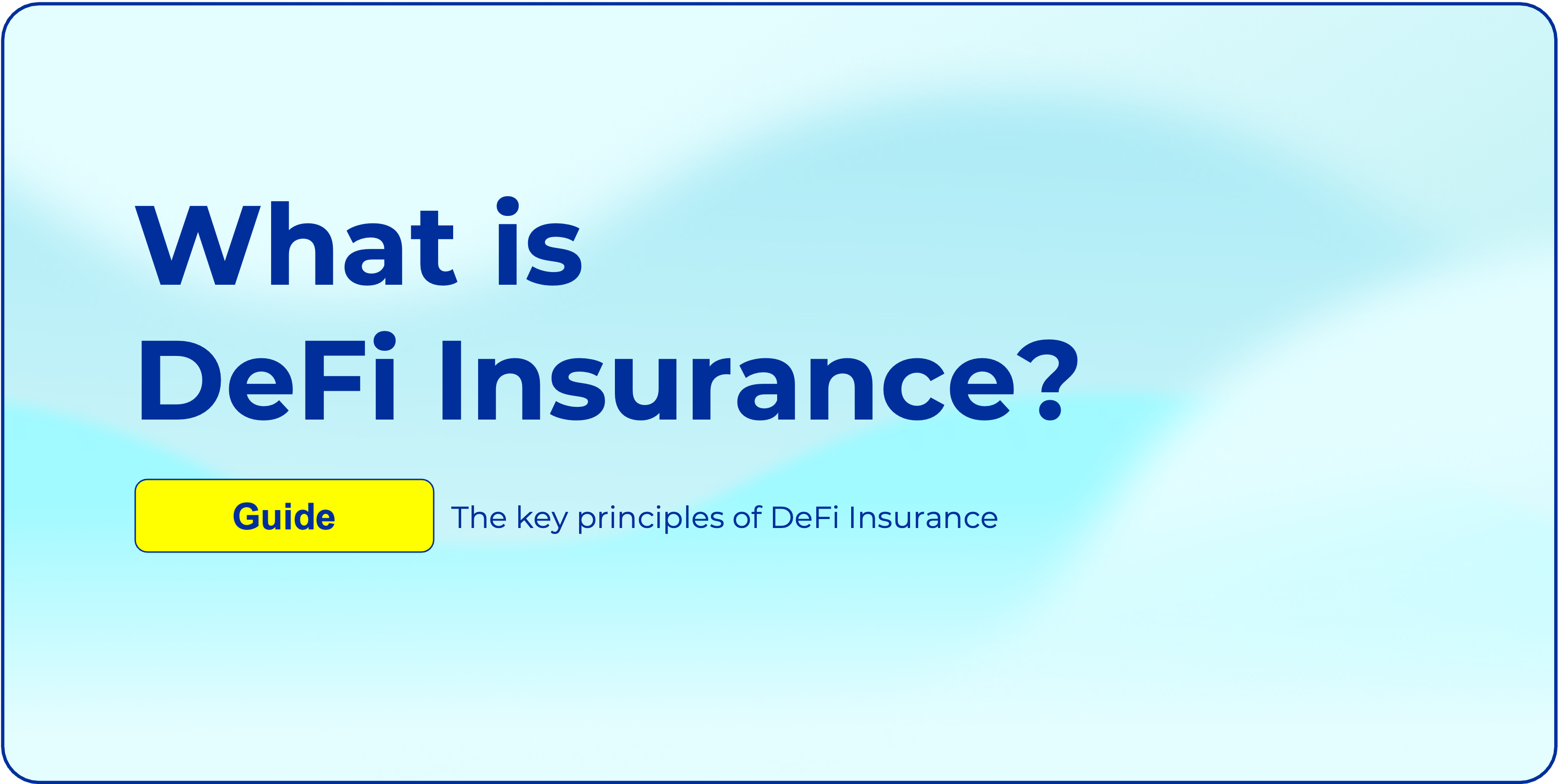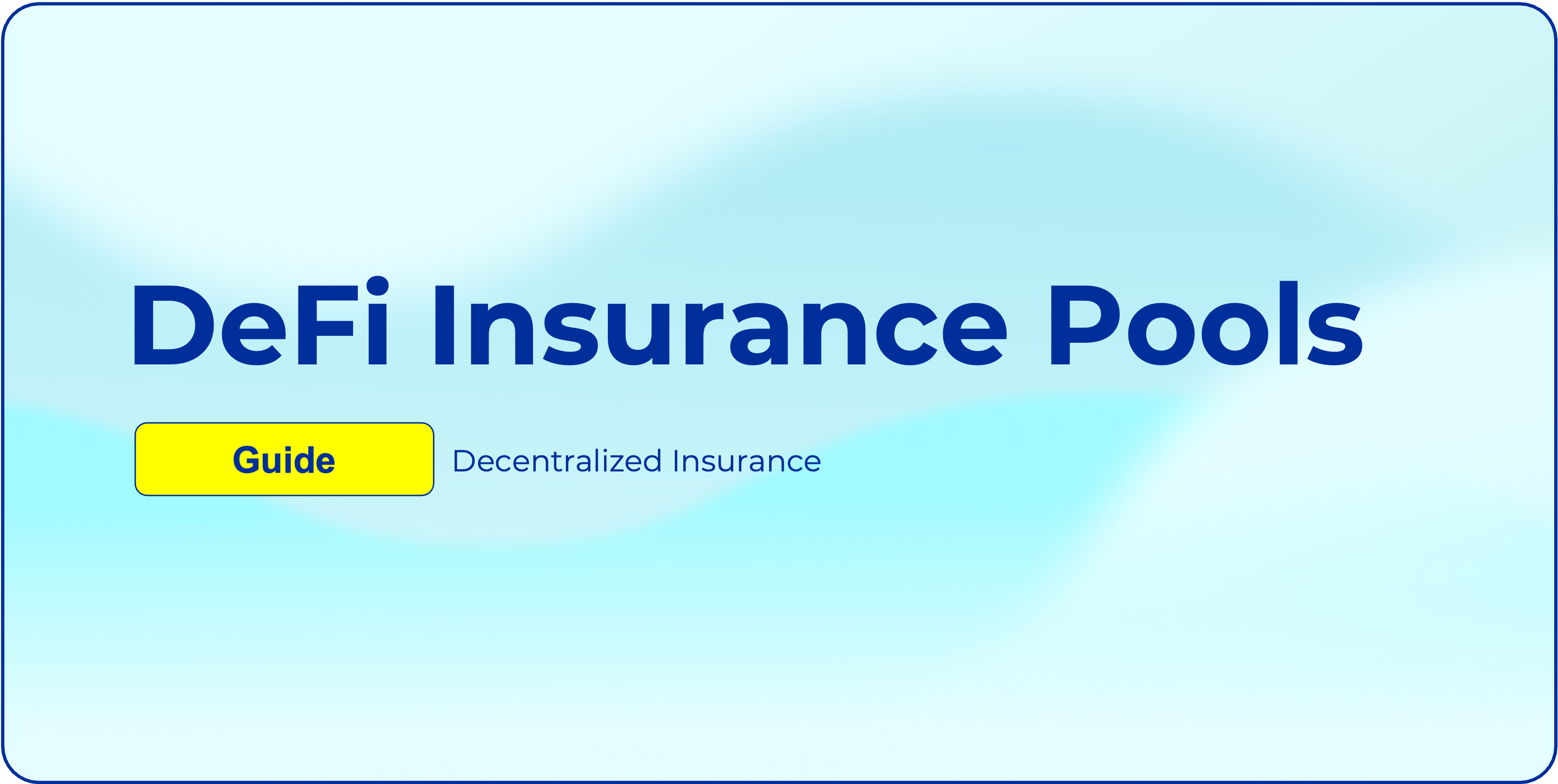DeFi Insurance: Frequently Asked Questions (FAQs)
In this article you will find answers to some of the most frequently asked questions on search engines about DeFi insurance. However, if you don’t find what you are looking for, please feel free to contact us today with any questions and we will be happy to help.
Q1: What is DeFi Insurance?
A: DeFi (Decentralized Finance) Insurance is a form of protection that covers risks unique to DeFi activities. It can also be used to replace traditional insurance policies like life, auto, and home insurance.
Q2: How does DeFi Insurance work?
A: DeFi Insurance operates on a mutual model where individuals share risk collectively, rather than depending on a single centralized insurance company. Pool Managers form contracts between insurer and policyholder, Liquidity Providers supply insurance collateral, and Policy Holders purchase the insurance policy. Committees provide governance of payouts, ensuring a fair model.
Q3: What is DeFi Risk Insurance?
A: DeFi Risk Insurance protects against risks unique to DeFi activities like investing in protocols. It safeguards against threats like hacks, platform failures, and other vulnerabilities specific to decentralized finance.
Q4: What is the DeFi Insurance market size?
A: While quantifying the exact market size of DeFi Insurance can be challenging due to its relatively recent emergence and the fast-paced nature of the DeFi landscape, it’s clear that the sector has significant potential for growth. As of July 2023, the total value locked (TVL) in DeFi protocols is over $44 billion, indicating a substantial demand for insurance services to mitigate the associated risks.
The growth potential is not just confined to the DeFi space, however. Traditional insurance sectors also offer immense opportunities, as the inherent transparency and fairness of DeFi Insurance can address some of the criticisms leveled at traditional insurance.
Q5: Can I earn rewards from DeFi Insurance?
A: Yes, liquidity providers, who supply the insurance fund with crypto assets, earn rewards typically in the form of the platform’s native crypto token.
These rewards can offer a higher yield than traditional savings or investment methods, thus providing an opportunity to earn passive income.
Q6: How does DeFi Insurance compare to Traditional Insurance?
A: DeFi Insurance differs from traditional insurance in several ways. It offers community ownership, more transparency, a democratic underwriting process, and a decentralized claim deliberation process. Additionally, insurance funds are pooled from a community of liquidity providers instead of private reserves.
Q7: What are the key benefits of DeFi Insurance?
A: DeFi Insurance offers several benefits. It streamlines claim management using smart contracts, ensures a smooth and transparent payment flow, democratizes the underwriting process, provides full transparency via blockchain technology, offers accessibility to anyone with internet access, and operates more efficiently by automating various processes and eliminating intermediaries.
Q8: How does DeFi Insurance help in risk management?
A: DeFi Insurance is an essential tool for risk management in the DeFi sector. It offers protection against unique technical and economic risks in the DeFi ecosystem, including smart contract failures and market inefficiencies. As DeFi matures, insurance becomes not only beneficial but essential for managing these risks effectively.
Q9: Which companies offer DeFi Insurance solutions?
A: Companies like Tidal Finance offer robust DeFi insurance solutions that protect against financial losses resulting from vulnerabilities in smart contracts, hacks, platform failures, and other risks specific to decentralized finance.
Q10: What is Slashing Insurance?
A: Slashing Insurance is a specialized service in the DeFi landscape designed to shield participants from the potential downsides that can occur during Proof-of-Stake (PoS) blockchain staking, particularly slashing events.
In PoS systems, bad actors or inactive validators are subjected to a penalty known as slashing, which can lead to the loss or complete destruction of their stake.
Slashing Insurance provides protection against these events for different participants in the ecosystem, including validators who propose and verify blocks, staking providers who offer staking services to users, and blockchain projects that utilize these PoS systems.
By opting for Slashing Insurance, these participants can mitigate their risk and safeguard their investment.
Q11 How is claim verification and processing done in DeFi insurance?
A: Different DeFi insurance platforms use different methods to verify claims. Often this is done by the community itself, set up as a Decentralized Autonomous Organization (DAO) structure. In this structure, holding the token associated with the insurance protocol gives you governance rights, meaning you can participate in voting to accept or deny claims. Other times, the claim verification happens in an automated way, using so-called oracles – decentralized information mechanisms that verify external data.
Q12: What are the advantages of decentralized insurance compared with the traditional insurance services?
A: DeFi Insurance presents several distinct advantages over traditional insurance services.
One significant benefit is its inherent transparency. All transactions, including claims and payouts, are recorded on the blockchain, reducing disputes and enhancing trust among policyholders.
DeFi Insurance also scores high on accessibility. Unlike traditional insurance companies, which may not serve all regions or demographics due to centralized structures and regional restrictions, DeFi Insurance, being a global online platform, allows anyone with internet access to participate.
Another unique attribute is the decentralized governance model. Unlike traditional insurance firms controlled by a centralized authority, DeFi Insurance allows policyholders to participate in critical decision-making processes, such as claim approvals, through the use of governance tokens.
DeFi Insurance can also be more cost-effective. The implementation of smart contracts eliminates the need for intermediaries, potentially reducing operational costs and leading to cheaper premiums.
It also offers lucrative returns for liquidity providers. Those who supply the funds used to pay out insurance claims in DeFi often earn higher returns than they would from traditional investments.
Lastly, the programmability of DeFi insurance allows for the creation of diverse and custom insurance products that cater to the digital economy’s needs, a flexibility often lacking in traditional insurance products.
Q13: How do I join a staking pool?
Tidal Finance is currently providing a total of 12,540,000 $TIDAL tokens every month to reward staking pool. This incentive will be set at launch to reward the staking pool, reward will be distributed per block.
TIDAL token needs to be held in metamask on polygon network to participate in the staking pool. How to transfer token from ethereum to polgyon please refer to “Transfer Token to Polygon” section. Learn more on this here.
Q14: How do I buy cover?
A: Tidal platform provides individuals coverage through their own project teams, offering end users a more immersive experience compared to purchasing from a 3rd party. Payout will be handled together with insured project teams based on each individual’s damage and coverage, saving the headache of each individual to keep up with the claim filing process. Learn more here.
If you have any more questions, please feel free to contact us today we will be happy to help.


